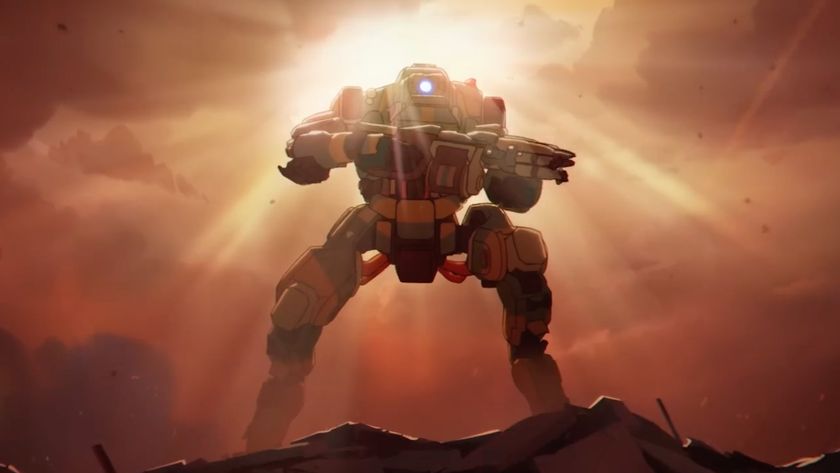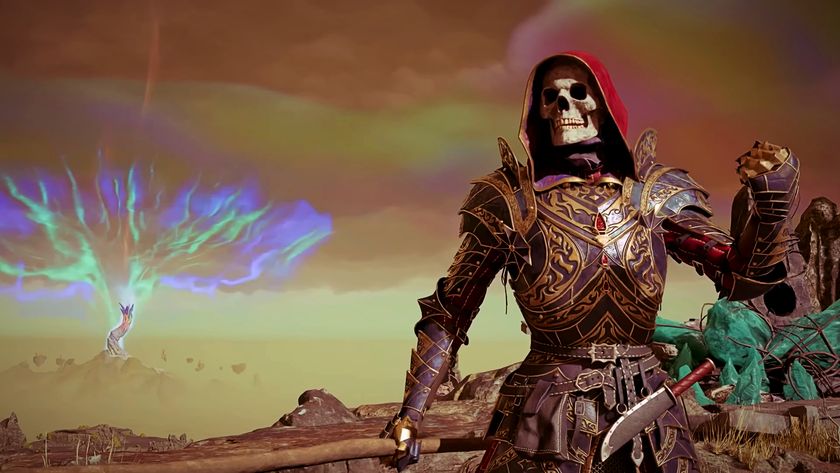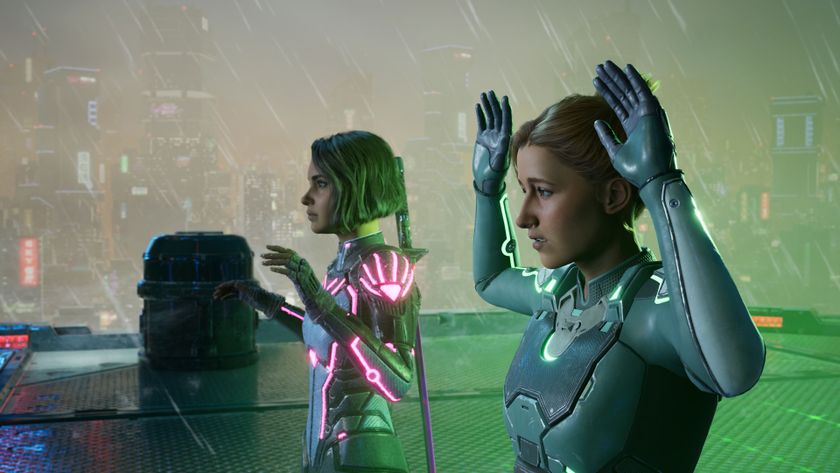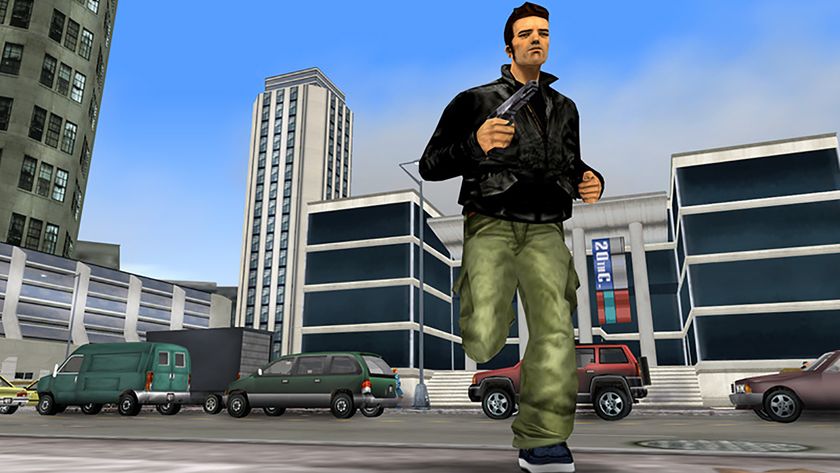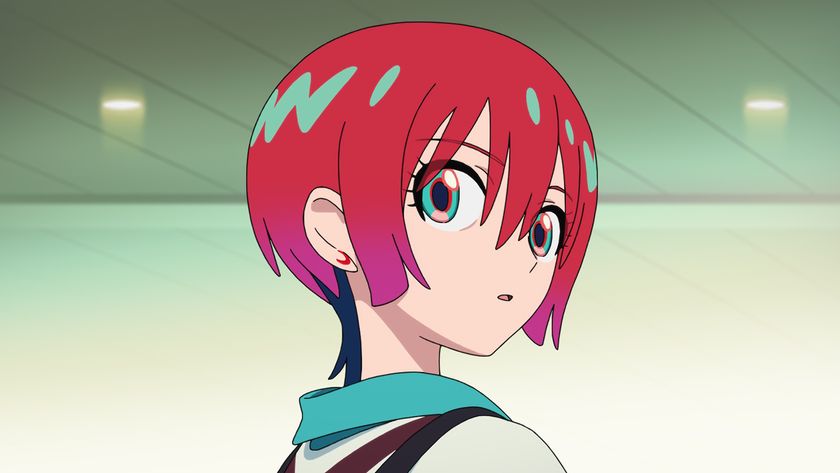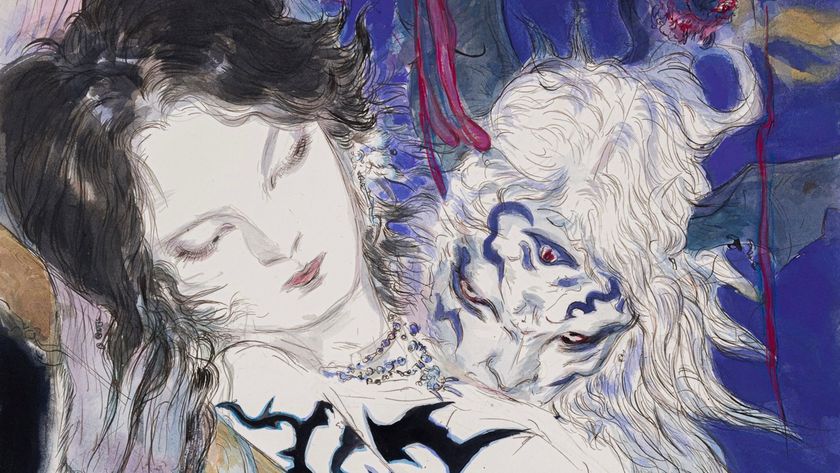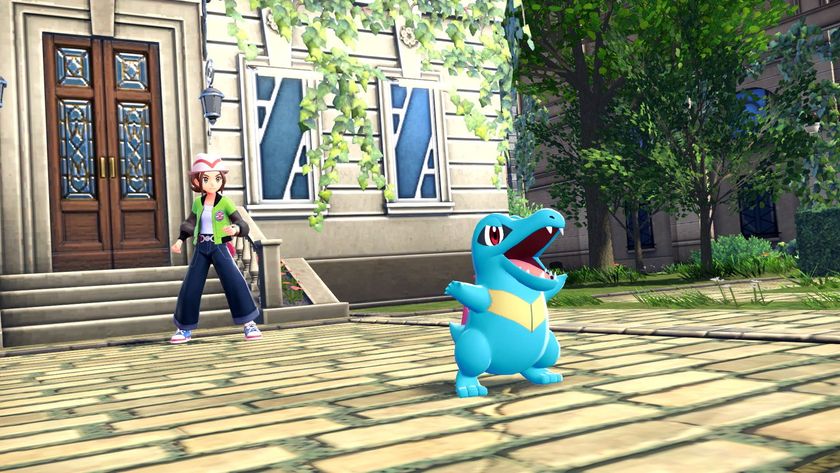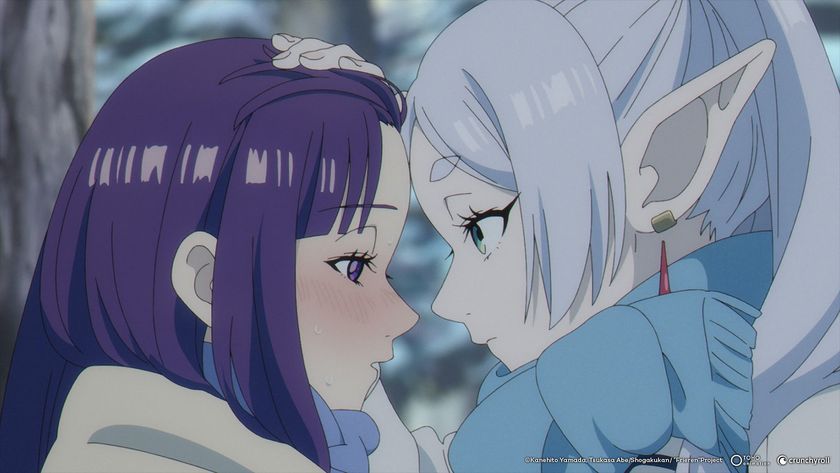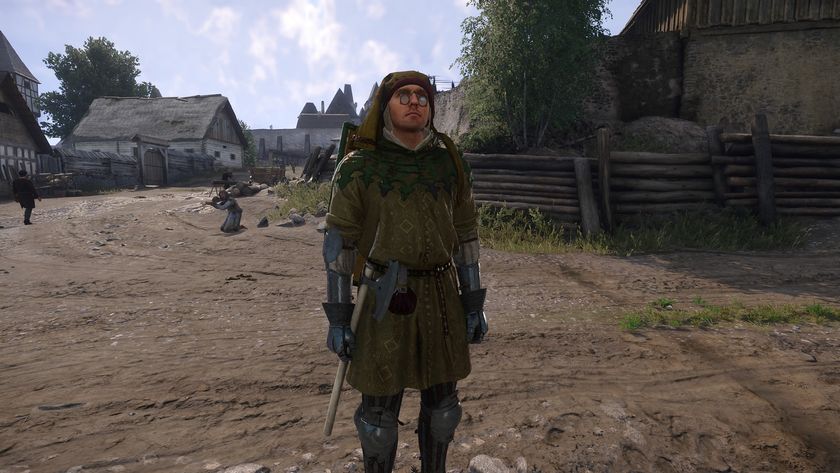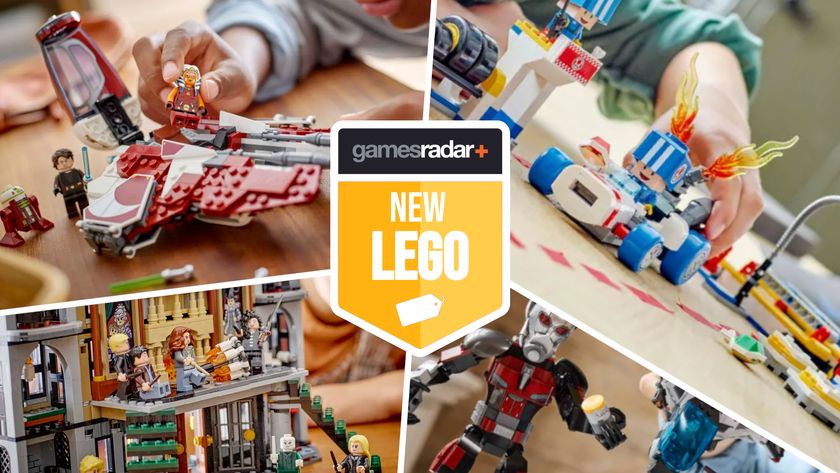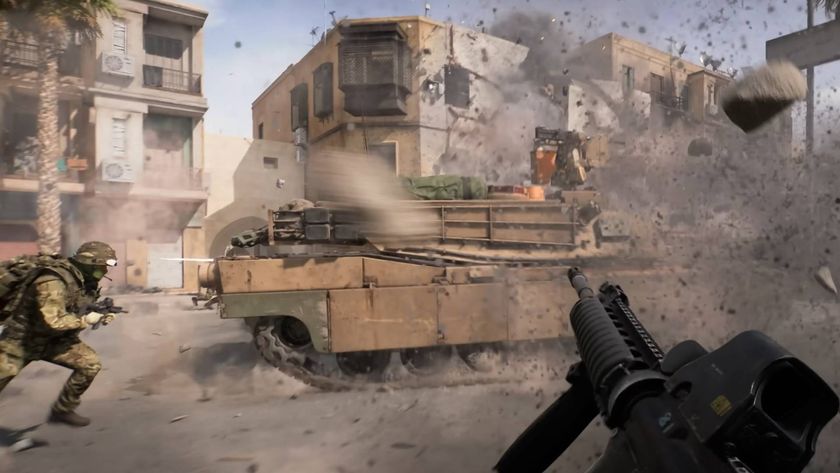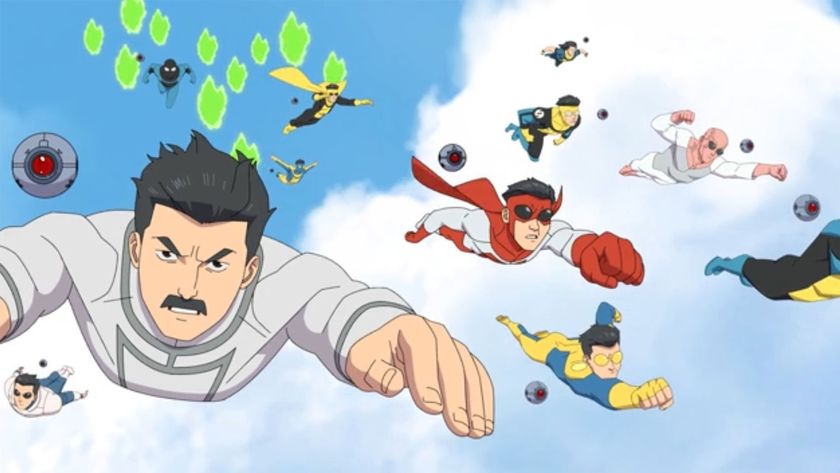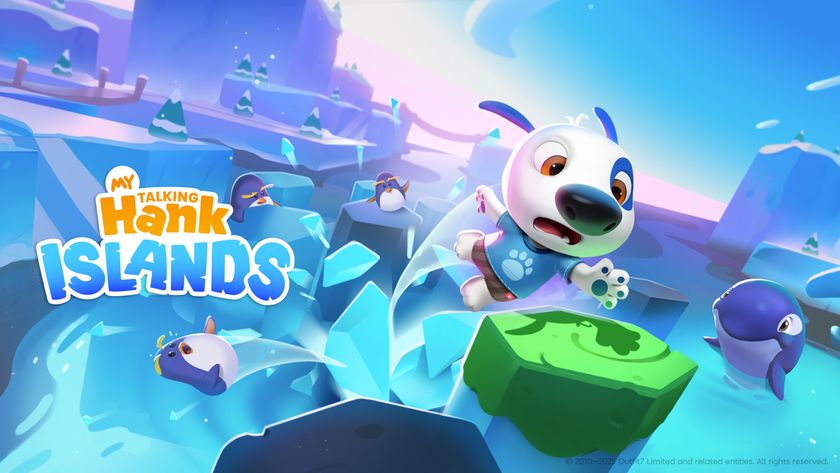Western RPGs vs Japanese RPGs - Great Debate
Which role-playing genre will reign supreme?

The battle of the genre within the genre
For the past few years weve noticed a decline in the quantity of Japanese role-playing games and a rise in the number (and quality) of western RPGs. Some argue that this is a good thing, and that the West has finally begun to triumph over the East when it comes to the RPG, while others believe that JRPGs are still the superior sub-genre.
Today, Hollander Cooper (1-1-0) takes the side of WRPGs, while Henry Gilbert (0-1-0) argues for the East. Which RPG is the best kind of RPG? Its time for the great debate.
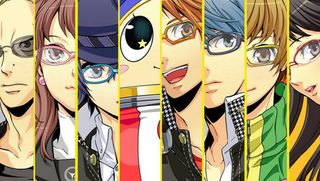
Henry says: Japanese developers care about making characters look unique
Henry: You can complain about repeated tropes all you want, but the developers care about making every single character look good. You wont see any stock armor or interchangeable space suits on JRPG characters. Each is a special snowflake, each made to stand out from the everyday people that fill the world. Even those that mock the pointy hair and zippers of some JRPG heroes have to admit that theyre memorable.
Cooper: Unique doesnt always equal good. Sure, androgynous protagonist wearing a belt and sporting spiky hair A might look different from androgynous protagonist wearing a belt and sporting spiky hair B, but being different isnt always all that special. Also, I dont even know if I agree that theyre all that unique--most sport the same outfits, hairstyles, and personalities. Whats so unique about that?
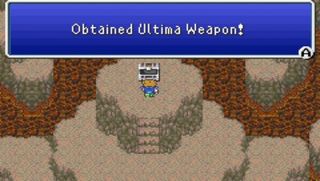
Cooper says: WRPGs have less tired cliches
Cooper: Nice belts, bro. Nice crystals, buddy. Nice spiky hair, dude. JRPGs aren't all the same, but... well, they're pretty close. A ragtag group of teenagers picking up swords, staves, and bows to fight a boring evil presence might have felt original in 1995, but in 2012 it's just a crutch. Meanwhile, BioWare and Bethesda are creating massive worlds (or universes) and finding interesting things to shove in them besides floating crystals.
Henry: Western RPGs may paint compelling characters in the corners, but the leads are almost always of the vanilla chosen one variety. Or the protagonist is drawn in incredibly broad strokes to give players the idea that theyre really defining their characteristics, which is consistently not the case. And dont underestimate the interesting characters that populate franchises like Persona and Lunar.
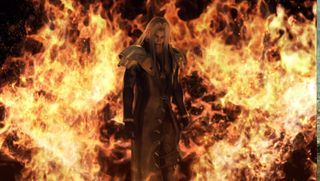
Henry says: JRPGs have a better sense of drama
Henry: The overly open nature of Western-style RPGs like Elder Scrolls end up lacking in payoff and feel increasingly random in their plot structure. The plots in JRPGs, like Chrono Trigger and Persona 4, are built around major moments that still work within the inviting structure of role-playing. And boss battles have satisfying, cinematic conclusions instead of ending with the empty thud of one last, wild sword swing.
Cooper: Melodrama is more like it. Theres nothing legitimately dramatic about teenagers whining about the fate of the world for 265 hours. By the time you actually get to the bosses youve helped, every townsperson find love and discover friendship, and those cinematic conclusions usually come after youve completed a nonstop barrage of trivial quests seemingly built from the ground-up to remove any real sense of drama or urgency from the story.
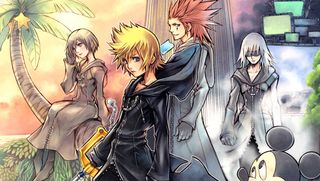
Cooper says: JRPG plots are often confusing, muddled messes
Cooper: In order to understand the plots of games like Final Fantasy XIII and Kingdom Hearts, you need to essentially pause the game every hour to read codex entries telling you who the Lacie or Nobodies or Organization XI is. It's overly complicated, and not all that interesting, even when you take the time to study their plots. Western RPGs don't fall victim to this folly, and usually include stories that make sense, or at least stories that make more sense than most JRPG plots.
Henry: Its true that some recent series seemed more interested in confusing players than telling a story, but it should be noted that most JRPGs are famous for telling complete stories in each game. Each new Final Fantasy and Dragon Quest told stories with a beginning, middle, and end that introduced whole new worlds that were hardly ever revisited. They didnt end in a lousy cliffhanger to make room for the next entry in a planned trilogy.
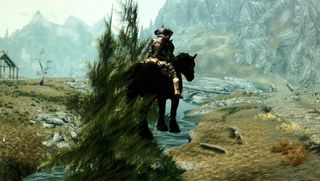
Henry says: Theres much better quality control
Henry: This is low-hanging fruit, and the only consistent culprit is genre leader Bethesda, but seriously, western RPGs seem too lazy or indifferent to not ship without massive, game breaking bugs. Bugs that might get fixed in a patch and will likely never be addressed, since the devs are busy working on the next broken game. Youll never see that in a Dragon Quest or Shin Megami Tensei game, since the developers pride themselves in their games actually being playable.
Cooper: Sure, if you compare every JRPG to Skyrim, youre going to notice more bugs, but thats the extreme situation. Most Western RPGs ship relatively bug-free, and though you wont see JRPGs like Dragon Quest or SMT shipping with huge bugs, plenty of JRPGs have issues when they are released.
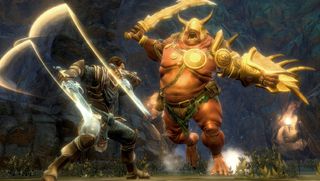
Cooper says: WRPGs include more interesting combat
Cooper: JRPGs have spent the last ten years scrambling to find a way to merge classic turn-based battles with action-based combat, and, by and large, they've failed. Games like Final Fantasy XIII and Xenoblade Chronicles end up feeling like dumbed-down massively-multiplayer online RPGs once blades are drawn. Meanwhile, Mass Effect has some of the best shooting in the genre, and Kingdoms of Amalur plays like God of War, while still maintaining its RPG roots.
Henry: First off, whats wrong with having a little extra time to think out your next move during turn-based combat? Second, Mass Effect was hanging on to the RPG genre by a thread in ME3, and Kingdoms of Amalur was only really an RPG in its trappings. They succeed in changing RPGs by leaving the genre altogether. With RPG elements in every game these days, its nice to still see an RPG fight actually work like an RPG.
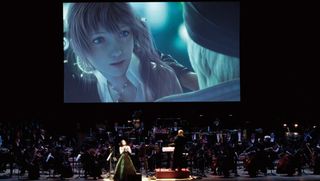
Henry says: JRPGs have unforgettable soundtracks
Henry: While Ill give Mass Effect credit for its distinct music, so many other western RPGs settle for epic scores that all sound like theyre merely ripping off the Lord of the Rings films. Meanwhile, JRPGs have been famous for decades for pioneering musically, and still do. Theyre much more committed to diverse soundscapes that give a different flavor to each new world and situation. Just look up the music of Nobou Uematsu, Yasunori Matsuda, and Yuzo Koshiro if you dont believe me.
Cooper: JRPG music used to be good, but in the last few years the quality has dropped significantly, leading to less memorable soundtracks. Now, many just substitute in cheesey J-Pop or obnoxious techno. No thanks.
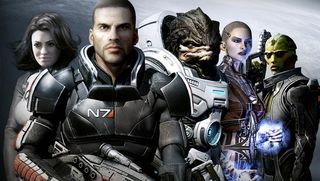
Cooper says: Choice-driven narratives are superior
Cooper: Say what you will about Mass Effect 3's ending, but that series has revolutionized the idea of player choice in a video game. Being able to shape not just your story, but an entire universe makes the events feel more important. It's a groundbreaking achievement in storytelling, and it's becoming more and more common, creating replayability beyond grinding to get XxUltimaxX versions of every weapon.
Henry: As with other parts of this list, Mass Effect is the exception that proves the rule. Most of the different endings youll see after completing Western RPGs basically amount to your character wearing a different hat as one of three possible endings plays on the screen. While some JRPGs do offer multiple endings, its more important to the creators to end strong instead of hoping the players found a compelling conclusion on their own.
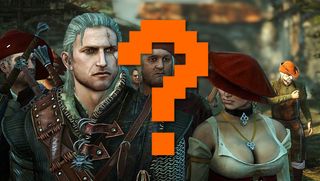
Dun dun dun dun, dun dun dun dun dun!
So, who do you side with? Henry and team turn-based battles, or Cooper on the side of choice-driven narratives? Answer the poll and comment below to let us know who you think won this Great Debate.
Who do you think won the debate?
And if you want more Great Debates, check out free-to-play games vs. pay-to-play games and Mario vs. Sonic.
Great Debate pits two editors in a head-to-head battle to debate some of gamings hottest topics. Have a subject you want them to discuss? Let us know in the comments and well wrangle some editors to talk it over.

Hollander Cooper was the Lead Features Editor of 12DOVE between 2011 and 2014. After that lengthy stint managing GR's editorial calendar he moved behind the curtain and into the video game industry itself, working as social media manager for EA and as a communications lead at Riot Games. Hollander is currently stationed at Apple as an organic social lead for the App Store and Apple Arcade.

